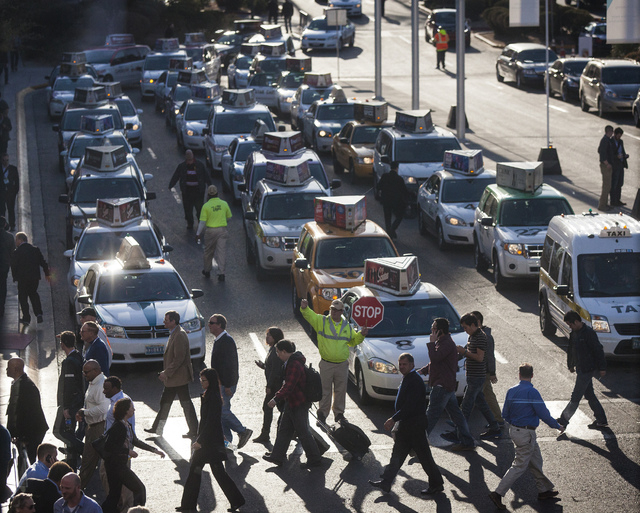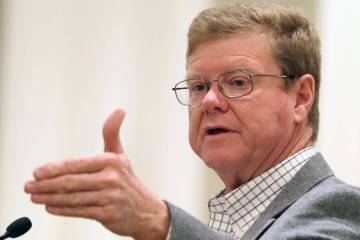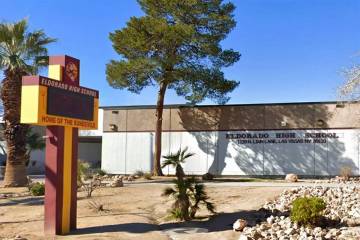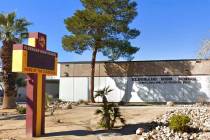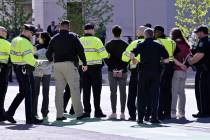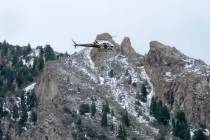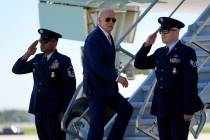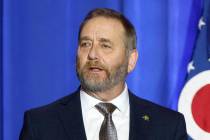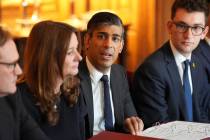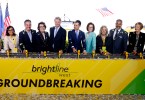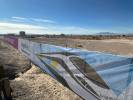Clark County board seeks comprehensive valley transportation plan
Transportation leaders say they’re on their way to making it easier for tourists and locals to get around the Las Vegas Valley.
The board of the Regional Transportation Commission on Thursday authorized executives to sign a contract with a consultant to draft a study for a multimodal transportation system to move people between the most congested areas of the city.
The board approved a recommendation to negotiate a contract with Charlotte, N.C.-based Michael Gallis & Associates to deliver a plan to coordinate traditional transportation such as cars and buses with prospective new technologies to move people between McCarran International Airport, the Strip, downtown and the city’s convention facilities. Board members reminded the staff to consider the possibility of a potential new high-traffic area — the site of a new stadium on the UNLV campus.
The commission’s contract with Gallis is expected to be delivered for final approval at the board’s April meeting.
Board members emphasized that a key part of the study would be to list options to finance an upgraded transportation system. Thursday’s meeting also was an opportunity for perceived rivals to come together to back a plan.
General Manager Tina Quigley said once the contract is signed, Gallis and her staff would work over an 18-month period with occasional public reviews to consider alternatives and then build a priority list of projects to improve mobility.
The cost of the study will be determined as part of the contract negotiation.
Alternatives for how to pay for improvements will be incorporated. Quigley said private-public partnerships, federal transportation funding and federal loans would be under consideration when it comes time to build.
Quigley said she expects successful transportation systems in Phoenix, Denver and Salt Lake City to be models for Las Vegas.
The Gallis study, formally known as the Transportation Investment Strategy Study, will compile current traffic capacities, future demands and requirements necessary to relieve high-volume areas. Quigley is enthused that key industries with an interest in solving traffic problems are working together.
Quigley is part of a transportation steering committee assembled by the Las Vegas Convention and Visitors Authority that includes representatives of the tourism industry, local government leaders, the taxi and limousine industries, the Las Vegas Monorail and other transportation experts.
LVCVA President and CEO Rossi Ralenkotter envisions the $2.5 billion Las Vegas Global Business District, an overhaul of the Las Vegas Convention Center campus, to include a transportation center.
Several representatives of that committee endorsed the Transportation Commission’s decision to pursue the study.
“This idea is in lock step with the long-term mission (of the LVCVA),” said Terry Jicinsky, senior vice president of operations for the LVCVA.
“I have been involved in transportation studies sincethe ’90s,” added Virginia Valentine, president of the Nevada Resort Association. “But this is different. It’s a new approach, a fresh start.”
Brent Bell, who operates Bell Transportation and is president of the Livery Operators Association, elicited some laughs with his endorsement.
“I think this is the first time the evil cab companies have been invited to something like this,” Bell said. “From our perspective as taxicab and livery operators, we’re not opposed to the monorail and I’m not just saying that because there’s a large gentleman (Las Vegas Monorail President and CEO Curtis Myles) standing right behind me. What the taxicab industry has been opposed to is that quarter-mile stretch on Paradise Road at Sierra Vista (Avenue) where that (monorail) line was built. That cost us three lanes of traffic and that really hurts us whenever there’s a big convention.”
Myles said for the monorail, the planning process began two years ago when Quigley was named general manager of the commission.
“Typically in Las Vegas, you don’t get people who are perceived to be competitors getting together to solve problems,” Myles said. “The monorail and the RTC are perceived to be competitors, but we’re not. We don’t serve what the RTC is serving.”
Contact reporter Richard N. Velotta at rvelotta@reviewjournal.com or 702-477-3893. Follow him on Twitter @RickVelotta.



